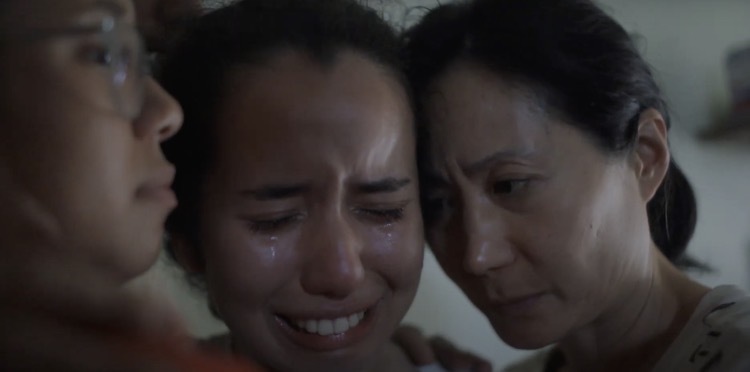‘Actual People’ discusses cultural identity, romantic struggles in nuanced depiction of youth
June 27, 2022
On June 26, Kit Zauhar’s “Actual People” took to the screen at the Austin Asian American Film Festival. Celebrating her first full-length film, Zauhar — the film’s writer, director and leading actress — proves her prowess in all aspects of filmmaking, making for a joyous debut.
The coming of age drama showcases 22-year-old Riley (Zauhar) as she anxiously approaches her college graduation. While struggling through the breakup of a three-year relationship, Riley hooks up with a boy named Leo from her hometown of Philadelphia and pursues a relationship with him, only to be met with heartbreak and a painful UTI. Ultimately, the film explores Riley’s haphazard approach to dating while navigating subplots of burnout, biracial identity and the fear of uncertainty in one’s early twenties.
With an abundance of shaky camera shots and a warm color scheme, Zauhar’s approach to directing on this project results in an intimate, heartfelt product. However, Zauhar’s skills as an actor ultimately resulted in the largest victory for the filmmaker. A majority of the film’s scenes frame interactions between two characters, almost always including Riley. The consistent focus on relationships between Riley and other characters such as her sister, ex-boyfriend or friend successfully grants insight into Riley’s different dynamics with various people in her life, adding more depth to her character. While scenes with her younger sister showcase a more maternal, mature side to an otherwise naive character, scenes between Riley and her sexual partners showcase a sense of insecurity and desperation stemming from a dependency on romantic validation. While many coming-of-age films grapple with stagnant, one-note characters, Zauhar succeeds at creating a multifaceted main character struggling to find self confidence — a problem many young adults are familiar with.
The film’s commentary on Asian American culture remains subtle, yet extremely powerful. Riley’s complicated relationship with her Chinese American upbringing is primarily showcased through her romantic endeavors. Throughout the film, Riley pines over Leo, who seems far less invested in their relationship, after a one-night stand. In a scene with her therapist, Riley reveals she feels connected to Leo because they share a biracial identity, with her being Asian American and white, and therefore ultimately struggle with similar cultural dilemmas. Other scenes express Riley’s struggles as an Asian American student in a predominantly white institution, including multiple moments where Riley silently reacts to racist comments and microaggressions.
The building pressure of Riley struggling with self-confidence and dependence on relationships finally bursts in a climactic breakdown around her family’s kitchen table surrounded by her sister and parents when she reveals she failed a class and might not be able to graduate college. While her parents are introduced as strict with high expectations for their daughters, they ultimately meet a sobbing Riley with a group hug and reassurance that everything will work out for the best. This heartfelt moment drives home one of the film’s largest themes that, while a lack of certainty in one’s early twenties can feel daunting, the struggle to find one’s place is not uncommon.
Despite depicting a self-conscious, uncertain character, Zauhar’s filmmaking skills show nothing but confidence. The multitalented writer, director and actor succeeded at creating a heartfelt and relatable portrait of youth, combining struggles of college dating with more nuanced commentary on cultural identity and family. The project includes many components of a typical coming-of-age film without feeling cliche or recycled. “Actual People” feels like a highly personal full-length film debut for Zauhar, yet still manages to remain grounded in the universal struggle to find a sense of belonging.
4 graduation caps out of 5














